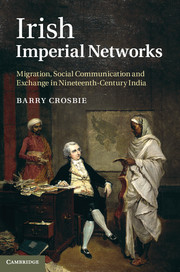Book contents
- Frontmatter
- Contents
- Preface
- Acknowledgements
- Abbreviations
- 1 Introduction
- 2 The business of empire
- 3 British overseas expansion, Ireland and the sinews of colonial power
- 4 From trade to dominion
- 5 Religion, civil society and imperial authority
- 6 From Company to Crown rule
- 7 Imperial crisis and the age of reform
- 8 Conclusion
- Glossary
- Bibliography
- Index
2 - The business of empire
Published online by Cambridge University Press: 05 December 2011
- Frontmatter
- Contents
- Preface
- Acknowledgements
- Abbreviations
- 1 Introduction
- 2 The business of empire
- 3 British overseas expansion, Ireland and the sinews of colonial power
- 4 From trade to dominion
- 5 Religion, civil society and imperial authority
- 6 From Company to Crown rule
- 7 Imperial crisis and the age of reform
- 8 Conclusion
- Glossary
- Bibliography
- Index
Summary
Introduction
By the early eighteenth century the British Empire was already proving to be a great resource for Irish commerce and military entrepreneurs in the Atlantic world – an important economic platform that was used to foster and expand Irish mercantile activity in the burgeoning East Indian trade later in the century. This chapter examines a series of business connections and commercial exchanges between Ireland and India that have so far been elided by historians of empire as well as being neglected within the broader historiography of Ireland. The chapter begins by examining Irish involvement in colonial trade in the British Atlantic world in the eighteenth century before demonstrating how such links expanded eastward in tandem with a rapidly growing Empire. Irish involvement in colonial trade and commerce in the East was ultimately bound up in the evolving structure and shifting responsibilities of the East India Company over the eighteenth century, a critical period which witnessed a fundamental transition in the Company’s organisational structure from trading power to imperial authority on the subcontinent. The gradual transformation of the Company’s administrative role and function in India was in part reflected in the nature of much Irish participation at a commercial and business level.
Initially, Irish merchants – much like their English, Scottish and Welsh counterparts – were subject to the same restrictions imposed upon private trade by the laws protecting the Company’s monopoly and exclusive right to trade in the East. This was mirrored in the relative number of private traders and free merchants from Ireland who attempted to establish legitimate business interests in the Indian Ocean region in defiance of the Company. However, as an increasingly militarised East India Company began extending the boundaries of its political sovereignty in the second half of the eighteenth century, acquiring more Indian territory and in doing so developing more sophisticated commercial links both inland and throughout the Indian Ocean region, it began drawing on Irish resources, personnel and experience as an important means of facilitating its new administrative and commercial responsibilities. As the Company evolved into a more complex organisation during this period, it was brought into increased contact with a whole host of communities outside of metropolitan London and centres of trade on the Indian subcontinent, particularly in Ireland where it became reliant upon a series of representative agents or business houses in Cork and Limerick to act on its behalf and to secure its particular commercial interests in a region. These agencies were established primarily because of the strategic and commercial significance of Ireland in facilitating long-distance trade, but also because of the need to protect the Company’s interests during a period of almost constant international conflict.
- Type
- Chapter
- Information
- Irish Imperial NetworksMigration, Social Communication and Exchange in Nineteenth-Century India, pp. 24 - 63Publisher: Cambridge University PressPrint publication year: 2011



